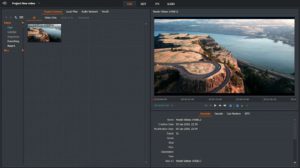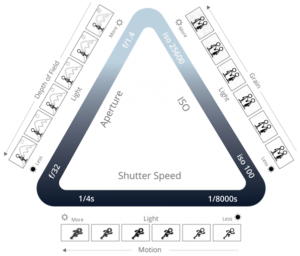Film directors make creative decisions to determine the look of a movie, including those that impact the special effects, filming locations, shot angles, and actors’ performances. These professionals participate in virtually every phase of a filming project.
A Film Director Wears Many Hats
The day-to-day tasks of a film director vary as the production of the film goes on. At the start of a project, they are responsible for reviewing and interpreting scripts, establishing the film’s tone, and choosing their assistant directors. Directors then begin working with other department heads on set, including those involved with casting, design, and camera work.
Responsibilities
Some of the key responsibilities of a film director include:
- Reviewing and adjusting scripts and selecting which ones to turn into films
- Monitoring and approving film production budgets
- Watching auditions, selecting actors, and directing actors
- Overseeing all aspects of the production process, both on and off the set
- Working with the sound and music departments
- Working with editors to produce the final version of the film
- Ensuring that the film stays within its budget and on its timeline
What Roles Does a Director Play Throughout the Filmmaking Process?
The director is heavily involved in all stages of filmmaking, from the very start of the project to the final cut. However, their role in each stage can be varied. For example, before even stepping foot on a film set, a director is heavily involved behind the scenes. Take a look at the different roles a director plays throughout the filmmaking process.
Development Phase
Developing the story and the script often takes place before pre-production begins, and the director won’t usually become involved in the project until the pre-production phase. However, if a director has written the script, they would be involved earlier in the project. Directors who are more hands-on may also make comments or changes to the script during the development phase.
Pre-Production Phase
A director must take a practical approach during the pre-production phase, as their vision will be constrained by the project’s budget and script. The first step in pre-production is working with others who will be involved in the production process to create a game plan.
The director can request revisions to the script during this phase, often working closely with the writers responsible for the story. Directors also review the tone of the film and communicate their vision to the heads of the other departments before production begins.
Another step in pre-production is listing shots and creating storyboards. This phase also includes auditioning and casting actors to find the right people to fill the roles and bring the story to life.
Production Phase
The next phase in the process is production, which happens on the film set. During this phase, the director will watch the actors rehearse and make important decisions regarding the look of the film and its overall direction.
The most important role of a film director during the production phase is directing the actors and the camera to get the right angles, shots, and results. The director must get to know the actors and understand how they like to do their jobs, and then they can adjust their directing to bring out the best possible performance.
Directors work with the actors during rehearsals to ensure that their vision for the storyline and the finished product is taken into account. The filming process also relies heavily on the director, as they must be happy with the takes before moving onto the next scene in the story.
Post-Production Phase
The final phase of a film is post-production, which may take place on or off the set. This is when all of the parts come together to create a final product, and the director will be heavily involved to ensure that the film turns out the way they envisioned.
During this phase, they work closely with the film’s editors and produce a director’s cut as well as the final cut. They also work with music and sound departments to make sure their vision is reflected in the final cut, which will include sound effects, background noise, and music to set each scene.
Becoming a Film Director
You must have a creative eye to succeed as a director. You need to be able to visualize a finished project and see it through to completion while working with a wide range of moving parts. Most directors and aspiring directors spend a lot of their time watching films to figure out what works and understand what went into making each scene.
What Training Does a Director Need?
Many film directors have undergraduate degrees in film or related fields. However, college is not a prerequisite for a director — experience is highly valued in the movie industry.
Qualifications
While a degree isn’t necessarily required, you do have to sell yourself as a director and convince producers and financiers to take you on to work on their projects. It is crucial to gain experience and build your skills to show that you are worth taking a chance on to produce films that will interest and appeal to audiences.
Skills
To be a successful director, you need the following skills:
- Creativity
- Confidence
- Ability to motivate
- Sharp eye for detail
- Communication skills to give directions to actors
- Organization
- Ability to stick to budgets and timelines
Professional Development and Progression
Join professional organizations such as the American Society of Cinematographers and the Motion Picture Editors Guild to help with networking and progressing as a director.
What to Expect
Film directors often work on a freelance basis, so the work isn’t necessarily steady or guaranteed. Most agents will only take on directors who have proven their ability to direct films, so you should enter your work in festivals and competitions to gain exposure.
Salary and Benefits
The U.S. Bureau of Labor Statistics includes producers and directors in one category, which falls under the entertainment and sports umbrella. According to statistics, the median pay in 2019 was $74,420 per year. However, directors are paid per project rather than receiving an annual salary. Some more established directors receive a percentage of their films’ box office earnings.
How Do I Find My Style as a Director?
It’s always smart to take multiple approaches to different genres and types of films before identifying your personal style. When working through these challenges, you can focus on embracing the influences that give you a creative vision, owning the characters in your productions, maintaining your integrity, and making each film you direct personal and meaningful.
How Do I Start?
To become a film director, you must showcase your work and convince a producer to take you on to lead their project. This often requires building strong connections in the industry and gaining as much experience as possible. As you work on projects, assemble a reel and consider working with an agent who will pitch you to others in the film industry.
Working as a film director gives you the chance to expose your creative vision through visual storytelling and share that vision with viewers across the globe. If you aspire to work in this field, consider going through an educational program like the Nashville Film Institute that will provide you with the valuable insights you need to start.













